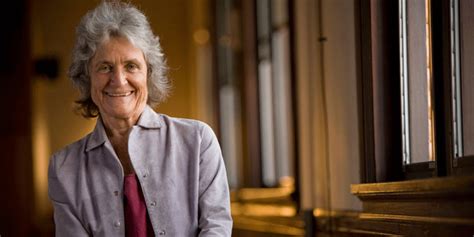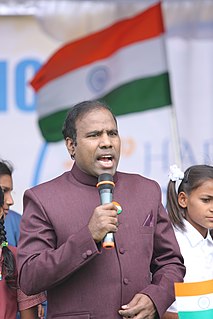A Quote by Peter Drucker
The most common source of mistakes in management decisions is the emphasis on finding the right answer rather than the right question.
Related Quotes
The right to the city is far more than the individual liberty to access urban resources: it is a right to change ourselves by changing the city. It is, moreover, a common rather than an individual right since this transformation inevitably depends upon the exercise of a collective power to reshape the processes of urbanization. The freedom to make and remake our cities and ourselves is, I want to argue, one of the most precious yet most neglected of our human rights.
The true test of liberty is the right to test it, the right to question it, the right to speak to my neighbors, to grab them by the shoulders and look into their eyes and ask, “Are we free?” I have thought that if we are free, the answer cannot hurt us. And if we are not free, must we not hear the answer?
I always say people would rather be nice than right. I like to be nice too, but come on. People frequently ask me, what is my definition of politically correct. My answer is always the same: the elevation of sensitivity over truth. People would rather be nice than right, rather be sensitive than true. Well, being nice and sensitive are important, but they're not more important than being right; they're not more important than the truth.
A very tall man once asked a question after my talk. Before beginning his question, he explained that the reason he was standing up is not to be intimidating but rather to make eye contact. His question was essentially "are we really interested in moral motives? Isn't it all about action?". I pointed out to him that it was not enough for him to do the right thing - stand up - but he also wanted me to know that he is doing it from the right motive or for the right reason - to make eye contact, rather than to be intimidating. Voila, moral psychology.
The most basic principle to being a free American is the notion that we as individuals are responsible for our own lives and decisions. We do not have the right to rob our neighbors to make up for our mistakes, neither does our neighbor have any right to tell us how to live, so long as we aren’t infringing on their rights. Freedom to make bad decisions is inherent in the freedom to make good ones. If we are only free to make good decisions, we are not really free.
By the time the average person finishes college, he or she will have taken over 2,600 tests, quizzes, and exams. The right answer approach becomes deeply ingrained in our thinking. This may be fine for some mathematical problems where there is in fact only one right answer. The difficulty is that most of life isn’t this way. Life is ambiguous; there are many right answers- all depending on what you’re looking for. But if you think there is only one right answer, then you’ll stop looking as soon as you find one.



































